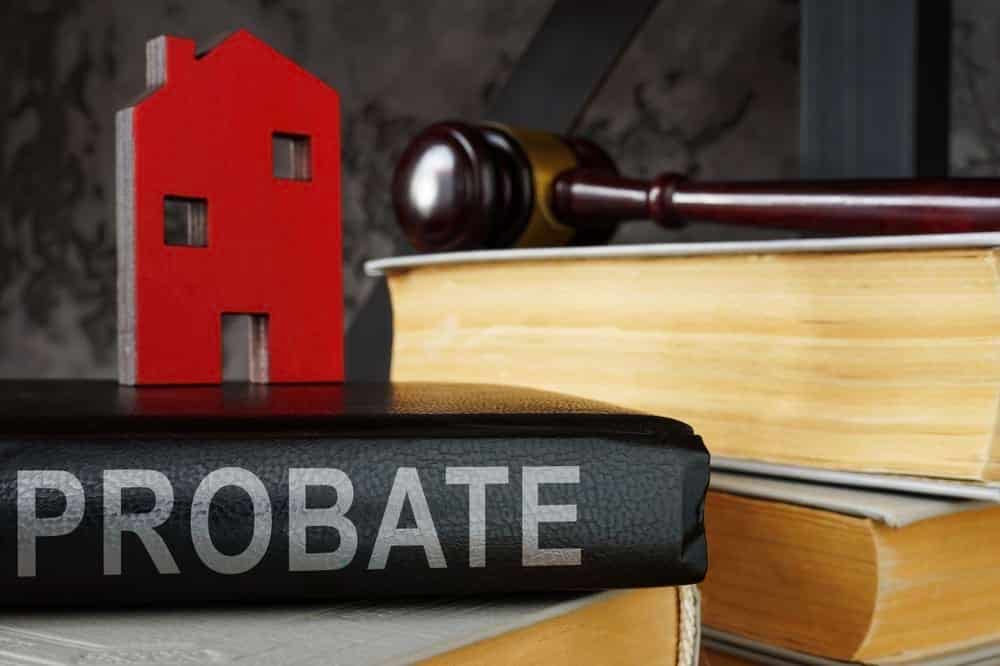This blog will take you through the key points on probate valuations, including:
- why estates need to be valued
- who carries them out, how long they take
- what happens for smaller estates
- how to ensure tax regulations are correctly followed.
And more.
What is a probate?
Probate is the legal process for managing a deceased person’s property and finances.
A probate valuation clarifies the estate’s total worth of assets and liabilities. It’s used to:
- Establishes whether inheritance tax is payable
- Ensures any tax obligations are fulfilled (including capital gains tax, stamp duty, etc.)
- Allows the distribution of assets to beneficiaries.
In most cases, a house valuation for probate makes up the bulk of this task. Of course, executors can’t just leave things at this.
Why does a deceased person’s estate need to be valued?
An estate valuation serves several vital purposes.
Inheritance tax amount
Its most important purpose is establishing inheritance tax amounts. This needs to be done before assets can are distributed.
In the UK, an inheritance tax is currently 40% on estates valued over £325,000. So, if the estate’s total value exceeds this threshold, you must pay HMRC.
Clarifying assets and liabilities
Probates clarify estate’s assets and liabilities for executors and beneficiaries. It accounts for all:
- Property
- Money
- Investments
- Insurance policies
- Pensions
- Expensive possessions (cars, jewellery, etc.)
It also factors any debts like mortgages, loans, or unpaid bills you must repay from the estate.
A clear picture of these assets and debts enables wills to be correctly executed. It ensuring beneficiaries receive what they are entitled to.
Who carries out a probate estate valuation?
Grants of probate can’t be issued until after inventories and valuations of estates. Who carries this out depends on the size and complexity of the estate.
For smaller, more straightforward estates, the nominated executors may value the assets themselves.
But for anything above £325,000 professional help is advisable.
Using professional probate valuers provides an impartial, independent assessment.
There are several professionals offer specialist probate valuation services. These include licensed solicitors, accountants, and some banks or fiduciary services.
If HMRC will penalise executors if they determined assets have been deliberately undervalued. So, using professionals to undertake valuations provides helpful evidence about due diligence.
How long does it take to value an estate?
The time it takes to value an estate can vary significantly depending on its size and complexity.
Rushing through this process risks undervaluing assets and being penalised later on.
For simple estates worth under £325,000, a DIY valuation by executors may take between 1 and 2 months.
But it’s essential not to underestimate the costs and the scope of assets. Using professionals later becomes necessary will add time and expense.
Professional valuations of estates above the inheritance tax threshold often take 6-12 months.
Larger or more complex estates can take over a year to value. Complex estates include ones with:
- A mix of domestic and overseas assets
- Extensive property portfolios
- Trusts
- Estates spread across multiple countries.
Tasks involved in valuation
Valuing estates requires meticulous:
- Asset location
- Legal documentation reviews
- Property surveys
- Contact with companies to value investments, pensions and insurance policies
- Discussions with accountants regarding any outstanding taxes owed.
Rushing valuations risk missing or incorrectly assigning assets. This creates complex disputes later between beneficiaries over asset ownership.
It is always best to put a flexible timeframe on completion.
What happens if the estate’s value is less than £5,000?
Estates with a total net value below £5,000 have simplified probate rules. These allow assets to be distributed without going through the courts.
(The estate’s executor must first send a statutory declaration to organisations holding assets.)
This allows assets under £5,000 to be released and distributed according to the person’s will. (Or intestacy rules without requiring a full grant of probate.)
Foregoing probate also means avoiding legal fees for valuations or applications.
However, liability remains with administrators if debts emerge later. So, be cautious when using this small estate process.
Any disputed ownership of assets should still go through probate for legal protection. Even if below £5,000 total.
Using the small estates procedure can save time and money compared to formal probate.
Why is an estate’s value so important?
The bottom line is that the value of an estate has implications across:
- Taxation
- Distribution entitlements
- Asset ownership claims
- Creditor repayments.
So, accurately determining total worth is vital.
What happens when estates are incorrectly valued
Sometimes inheritance tax is incorrectly calculated and paid because assets were undervalued.
This leads to outstanding tax plus interest and penalties. It also delays asset release and creates preventable financial damage for beneficiaries.
Likewise, the probate process confirms legal ownership and entitlements before distribution.
Beneficiaries can contest the will in several scenarios. This includes if they believe assets have been incorrectly assigned or deliberately undervalued.
A correct valuation provides a definitive reference point. This reduces the chances of disputes between executors or beneficiaries later on.
Repaying debts from estate’s assets
You must also repay the estate’s debts from asset sales to finalise probate.
These take priority over distribution to beneficiaries. So, understating debts risks not being able to cover what is owed to creditors.
Carefully valuing estate’s worth and having it accepted by all stakeholders minimises disputes. It also establishes any tax liabilities due so HMRC processes don’t get held up.
How do I make sure any tax obligations are met?
What asset value affects
What taxes apply, the total value of assets after deducting debts will decide:
- How much is owed
- Deadlines for payment
- Where funds will come from to meet liabilities.
So, ensuring inheritance, income or capital gains tax rules are followed is essential.
Consequences of incorrect valuations
With inheritance tax, in particular, complete disclosure to HMRC is vital. Serious tax evasion consequences might occur with:
- Deliberate undervaluation of assets
- Not accounting for relevant lifetime gifts
- Concealing assets offshore
- Transferring ownership before death to limit tax can.
Gifted assets
Assets gifted or transferred within seven years of death still attract inheritance tax. It all depends on timing and the extent to which assets have been appreciated.
Even if probate isn’t required for their distribution, leaving them undeclared risks penalties.

















